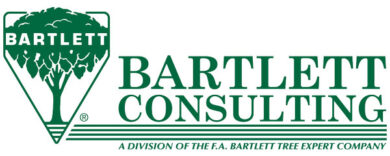How to Successfully Develop Productive Partnerships

By Craig Bronzan and Scott Miller
In recent years, most parks and recreation agencies have had to deal with the economic realities of reduced revenue and higher personnel costs. On the recreation side of the house, program fees and charges can be revised and/or programs can be eliminated/given to other service providers to close budget shortfalls. However on the parks side, which is charged with maintaining the amenities, facilities and landscape, raising additional revenue can be problematic. As a result, many agencies are either considering, or have started to contract for, maintenance services.
Contracting for maintenance services, a concept that many times replaces department employees with contract employees, is usually looked at as being “bad” or something that will not provide the same level of service. However in our new economic reality, contracting may be something that we have no choice other than to accept. If that is the case, there are some lessons learned that can help make contracting successful.
Contracts that are professional services contracts, where negotiation is possible, are more successful than “low-bid” contracts. Experience shows that a low-bid contract can end up costing more through change orders and other extra work than a contract that allows for ongoing negotiation. Price is important; however, if it is the only criteria at which you are able to look, you will probably end up spending more in the long run.
The quality of service provided by a contractor is paramount to any success. The contract needs to clearly state your quality standards so that you get what you want. Do not beat around the bush: if you want your turf to be “weed free,” then write your standards that way. Time is not something we are blessed with these days, and spending additional time trying to haggle over agreement on a standard is time you do not have. Standards need to be written as simply and directly as possible, so that a 12-year old child could say whether it does or does not meet standards.
Quality outcomes are the goal
Standards for quality should be written as “outcomes,” and not based on a performance that you have to count. You want to let the contractor know what you want — for example, weed-free turf. You don’t want to direct the contractor on how to make the turf weed free or you will be treating the contractor more like an employee, and you will have to spend time making sure they do what you told them to do.
The relationship between the contractor and the agency needs to be written into the contract as that of a partnership where the contractor and agency have a shared interest in maintaining the landscape. One of the arguments against contracting is the belief that a contractor will not care as much as an agency employee. If the contract is an “us versus them” contract, that will be true. If the contract allows for incentives and collaborations, and extensions or options based on a partnership, the contractor will look at the contract as a longer term investment, and will hopefully bring skills other than burying the agency in change orders. The City of Roseville, Calif., uses both collaborations and extensions as methods of showing its long-term commitment to its partners. In return, this commitment provides the partner with a level of comfort that enables them to invest in both people and equipment that will make them more productive and efficient. This commitment has led to the lowering of contract costs over time for the City of Roseville and has also resulted in a sense of ownership within the employees of its partners due to the numerous years that they have spent maintaining portions of Roseville parks and streetscapes. The City of Brentwood, Calif., regularly meets with contractors to see if there are improvements that can be made in the contract. The intent is to get a great partnership that will last over time to the benefit of both partners.
Quality assurance is critical to the success of any contract and true partnership. The City of Roseville and the City of Brentwood both use the quality assurance process to assist in building relationships and partnerships between their staff members and the staff members of their private partners. Quality assurance inspections are necessary, and can be very time consuming, but are critical. If you do not do regular inspections, how do you know if your partner is meeting the standards you require? The quality assurance inspection should be a tool used to ensure that your partner is achieving their contractual obligations, but can also be a valuable tool that builds the concept that “we” are maintaining this area for “our” residents; and the inspection is just another tool that your partner can use in their scheduling, planning and prioritizing. To simplify the process and reduce paperwork, inspections can be exception based, meaning that, unless indicated otherwise, the site meets standard. This requires that the only information you need to identify relates to what does not meet standard. Additionally, the standards should have only two measurements: meets standard and does not meet standard. Measurements such as “needs to improve” only add additional time and misinterpretation between the contractor and the agency. Remember, friends are friends and business is business. When done properly, your quality-assurance inspections can meet your contractual compliance needs while enhancing the sense of partnership for both entities.
A comprehensive background check of any prospective contractor is important so that you know what they can do in like environments. Is the company fiscally solid? Do they have references you can check for work they performed that is similar to what you are asking? Do they use technology, and can they be flexible when necessary? Are they responsive to requests — especially in emergency situations? What is their quality control plan that will provide you a level of comfort that they are paying attention to the details you need? How do they resolve differences with they disagree on the terms of a contract? How did they do in the interview (yes, a formal interview should be a part of your process, and you should request that they bring with them to the interview the staff members who will be overseeing your contract). Having the comfort level that a company understands your expectations and can deliver the maintenance you expect is more than just a price consideration.
Remember the true customer
Customer service is many times a misunderstood component of maintenance contracts. Though it is important for the contractor and agency to provide excellent customer service to each other throughout the contract, the real customers of both the contractor and the agency are the citizens of the community. Many times we lose track that the citizens who pay the taxes and/or assessments — the very ones who actually use the facilities and landscape areas — are the customers. A contract should in take into consideration the wishes of the community related to standards and expectations, as the agency is just the administrator of the contract when the citizens are providing the funding for the maintenance. Having users understand what they should expect from a maintenance standpoint helps the agency keep the contractor on track, and builds on the partnership that should be one of the guiding principles of the contract. The quality of a contract is what the citizens and users want and expect. Truth be told, they care very little how you get there.
Finally, a contract needs to have corrective measures to ensure that the work is done to the level the agency expects. Once a situation has been identified as not meeting standard, how long do you allow the contractor to make repairs? If plant material dies on a contractor’s watch, how do you get them to replace/pay for replacement? Do you assess a financial penalty for each “out of compliance”? What about repeat out of compliances; is there an additional penalty? There is not one way to do this; however, you need to address corrective measures up front to make sure that the standards are met as per the contract conditions. The contract needs to be clear and up front on your expectation for corrective measures. You also need to understand that overseeing a contract takes time, and is something that has to be factored into the cost of contracting for maintenance.
For many years, contracting out maintenance services was considered something that most agencies try to avoid. In the new normal, where expenses continue to rise faster than revenues, it may be something that you have to consider. If you consider contracting, you can make sure you get what you expect if you spend the time writing the contract and standards using some of the lessons that have been learned to increase your chance of success.
Building partnerships takes time and effort on everyone’s part. And although the expectation should be written into a contract, it is the responsibility of both parties to foster the development of a long-term partnership. It is extremely important — especially in the beginning of a new partnership — to take the time to care for it. A partnership is no different than a marriage; someone is going to leave the cap off of the toothpaste, and someone else is going to leave the kitchen light on. The key to a successful partnership is learning to work together, as well as appreciate each other’s little quirks. Do not be over-critical, especially in the beginning. It is important to talk through situations to ensure that people are “seeing” things in the same way, and learning from every experience — good and bad. Through years of trial and error, both the City of Roseville and the City of Brentwood have come to anticipate that a true partnership will take 12 to 18 months to establish. The focus should be on making the initial period a long-term relationship, or you will forever spin in the trial-and-error period.
Generally speaking, private contractors, and especially those bidding on public projects, have been trained by the public sector to come in low on the base bid and then make their profit on change orders, extra work, and cutting a few corners. This is their culture. The public sector culture is to be on guard for such activity and enter contacts with the intent of “catching” the contractor doing something wrong. Acknowledge that these cultures exist, and understand it will take your partner’s staff, as well as your own staff, time to adjust to this new method of thinking. Also, remember that you are the steward of public funds and must ensure that those funds are being used wisely.
Craig Bronzan is the director of parks and recreation for the City of Brentwood, Calif; Scott F. Miller, CPRE, is parks superintendent, for the City of Roseville, Calif.



